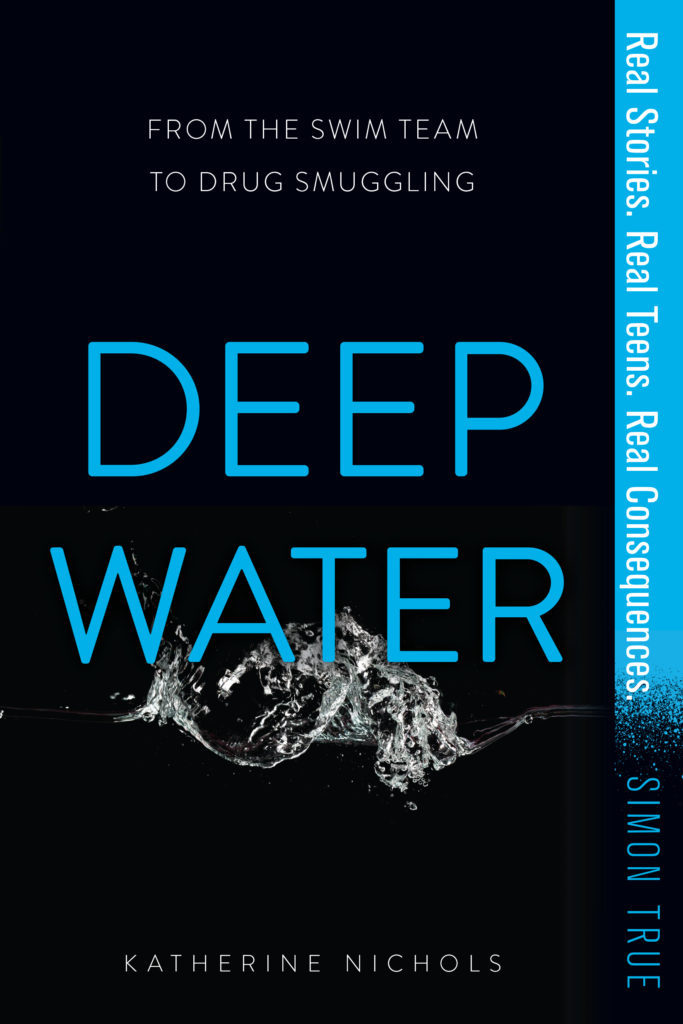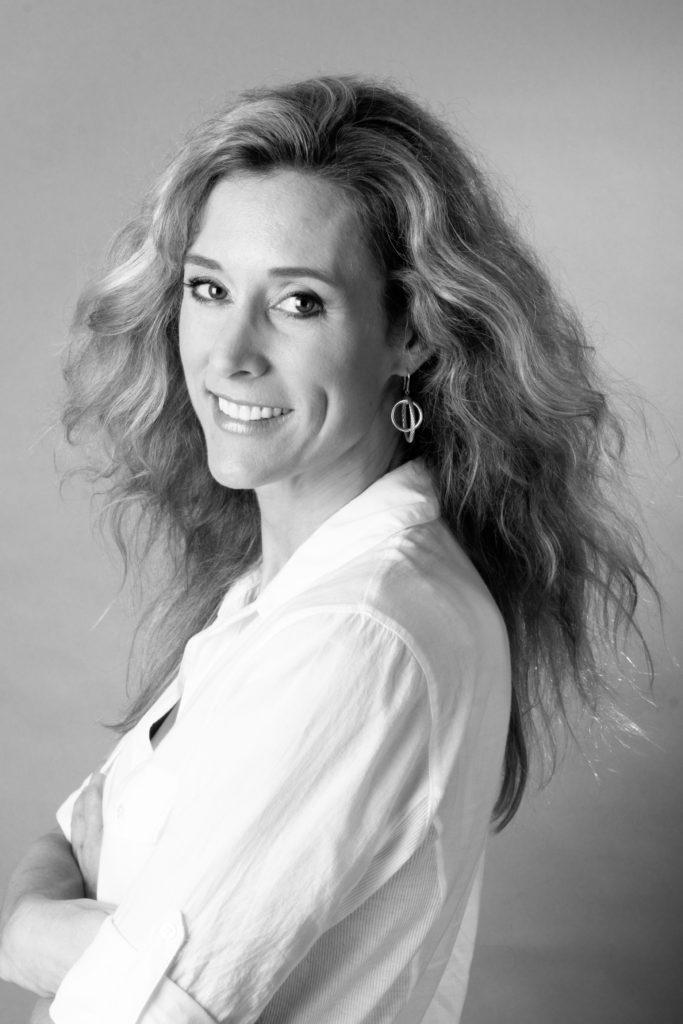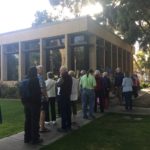
Book Launch and Discussion with Katherine Nichols
May 2nd, 2017 at 6:00 pm
The Coronado Library’s Winn Room
*Bay Books will have copies of the book available for purchase at the launch.
UPDATED: Below are some pictures from the May 2 packed-house book launch and signing:
Review of Deep Water
When I first moved to Coronado, I heard an urban legend that back in the 1970s a Coronado High School teacher and some of his former students smuggled marijuana from Mexico into California by swimming with packages of drugs in the middle of the night. Obviously, that story was made up, right? Turns out, not only was it true, but the story was even more fascinating and startling than I ever imagined! Katherine Nichols’ novel Deep Water was so intriguing that I couldn’t put it down, reading the book cover to cover in one day as I willingly chose to neglect everything else going on in my life.
Growing up as the fourth generation in her family to call the Crown City home, Katherine (nee Riddle), CHS class of 1984, was always interested in the story of the Coronado Company, a drug smuggling cartel made up of the most surprising group of people, a bunch of young men who were once part of CHS’s swim team. In her narrative non-fiction novel Deep Water, set to launch on May 2nd, Katherine weaves the story of how a group of Coronado High School graduates, along with their former Spanish teacher, came to smuggle over $100 million worth of marijuana and hashish across multiple international borders, setting up distribution centers on both the east and west coasts of the United States.
Crime stories always catch my attention, but Katherine’s novel about these real life criminals from Coronado is so different than typical tales involving crime syndicates. What made the Coronado Company, as the group named themselves, different than stereotypical bands of outlaws is that this group remained non-violent, emphasizing the concept of friendship and camaraderie over money. Yes, they smuggled drugs into the country, but their loyalty to one another was what got the job done rather than the use of weapons.
As a former high school teacher myself, I was struck by how manipulative the former Spanish teacher, the cool and handsome Lou Villar, was in controlling the group. His students, especially the young and impressionable lifeguard Eddie Otero, looked up to Mr. Villar, and Villar took advantage of their trust as he entangled them further down the road to no return. Quite honestly, it angered me as I read how controlling he was, essentially keeping their illicit business intact as he enjoyed the fruits of everyone else’s labor without having to get his own hands as dirty as the rest of the group’s. As his empire grew, so did his greed.
As I turned each page, I kept waiting for the moment when the Coronado Company would run out of luck, awed by how they were able to turn Lance Weber’s crazy idea of swimming drugs into Coronado into a full-fledged operation that spanned almost a decade. The book did not disappoint, and I felt like I learned more about Coronado’s glory days, the idyllic time period people reminisce about long before the days of people posting, “Bring back the toll,” on social media. As a resident of Coronado, I especially loved all Katherine’s references to Coronado streets, beaches, and businesses, making it so easy for me to conjure exact images of the places in town we all know and love.

Q & A with Author Katherine Nichols
“People are so hush-hush about the Coronado Company. They see it as a very negative piece of Coronado’s history, but I don’t see it that way. It’s just another story. Most stories out of Coronado are fabulous, positive, and perfect, and there’s such military pride. (My father was part of SEAL Team 1, and fought in Vietnam, and I’m very proud of that.) There’s all this wonderful history that comes out of Coronado, but everything can’t be perfect. I’m more accepting of the fact that we all have imperfections, including the town, and I’m okay with that.” – Katherine Nichols
Why did you want to write this story about the Coronado Company? Did you have any personal connection to any of the people involved in the story prior to writing about it?
I have been fascinated by this story for years! In the ’80s I kept reading articles about the Coronado Company when the guys were caught and then prosecuted. I married someone who had worked as a lifeguard in Coronado, so for many years I heard stories about the participants and the major players. I grew up in Bob Lahodny’s house (one of the key members of the Coronado Company), but I didn’t have any personal interactions with any of the people involved.
I thought it would be such an interesting story to tell. In the ’90s I wrote a fictionalized version of the story as a novel, taking inspiration from the stories I heard about swimming drugs across the border and how it had developed into an even bigger business. I tried to sell the book, and had some publishers interested at the time, but most of them thought that they didn’t want to deal with a story about marijuana, and they didn’t believe that it could actually happen. I think it’s ironic that the fictionalized version failed, and that I couldn’t sell that story because people thought it was so unrealistic!
Years later I was working on another book, and my agent asked if I had written anything else. I gave her my dusty manuscript that didn’t sell years and years ago, and she said, “This is great! Let me take it to Simon & Schuster.” Simon & Schuster loved it, and they said, “This would fit perfectly in this new line we’re starting, but we want the true story.” They wanted me to do all the research on the real story, essentially starting from scratch. I said, “Of course!”
I see you interviewed several Coronado people as you researched this story. How did the people of Coronado react as you began asking questions about the Coronado Company?
I wasn’t sure when I first started working on it because it seemed like a hush-hush topic. At first I would say that people were resistant or a little reticent. They weren’t sure what my motives were or what I was doing. They wondered if I was legitimate, and questioned what I was trying to accomplish by writing a book about the Coronado Company. I think they were hesitant to talk about it, and it took a while to earn people’s trust.
I even had to earn the trust of the law enforcement people involved. It took several phone calls, where I had to explain my ties to Coronado and the fact that I had a contract from Simon & Schuster. All those pieces started to legitimatize my efforts, and I had to really explain to people that I wanted to get the full story and capture the nuance, not just what happened here, and what happened next.
My focus wasn’t just to tell the story of how these guys broke the law, and how they were all criminals. I wanted to present something that was more layered and interesting because, at the end of the day, these guys are human beings; they have strengths and skills and flaws, and they make mistakes like we all do. I was trying to delve into the true aspects of this story, and capture who they are/who they were.
Some people in Coronado weren’t willing to talk to me about the Coronado Company, and I was fine with that, respectful that it was a choice. I read passages aloud to some people who were on the fence about the story so they could see what I was trying to accomplish and what I was doing. That helped.
Of the eleven Coronado Company principals listed in the beginning of the novel, two of the names are pseudonyms. Why did you decide to give those two characters pseudonyms when this is based on a true story?
I felt more compelled to protect them because they were less prominent in the news. When using real names in a story, you go through legal parameters, and it comes down to, “How much has this person been written about in the news, and how well known is this person’s name?” When that’s pretty well established, you can feel comfortable using the real person’s name. When it’s less obvious, it’s more appropriate to put a little protection in place for the person.
You seemed to favor Eddie Otero in terms of painting him out to be a nice kid who got caught up in a lifestyle that was too lucrative to turn away from, a young man who was naive yet savvy at the same time. Was this done intentionally to make readers connect with him, or do you believe he was more innocent than his counterparts? In contrast, Lou Villar was portrayed as the mastermind even though he’s not the one who initially started smuggling drugs.
Very good question! For one, Eddie was the youngest person to start. I cut him a little bit of slack in the fact that he’s only seventeen years old when he gets involved. How much common sense do seventeen year old boys exhibit? That’s one piece. I’m not trying to make anyone think any way about any specific person. What I was really trying to do was portray each person in a nuance, sophisticated, and layered way that was true to the person based on all the many accounts that I gathered. Multiple people spoke about how Eddie was such a nice guy. I really tried to cross check all the accounts I had about each person, and work those accounts into the portrayal of that person.
It’s a really challenging task to take all these secondhand accounts since he’s no longer alive, and then create a feeling of the person, and implement that throughout the story that has fact-based parameters. I had some leeway to create scenes, dialogue, and interaction that I think might have taken place to propel the story forward. I have a lot of liberty to create how the person projects.
Is Eddie less guilty? No. Does he have a different personality than the others? Yes, I think so. I guess that’s what it comes down to. I don’t feel that I’m letting him off the hook in any way. Was he kind of an oaf sometimes, a bumbling guy? Based on all the accounts I heard, yes. He loved to host his friends, and was good to his friends, doing everything he could for them. “He was a really nice, just all over good guy,” is what I constantly heard about him so I had to account for that, and balance that with, “Boy, did he screw up!”
When he went to make deals with boat captains, found the right people, and went overseas to figure everything out in the most dire of circumstances, nobody was better. Nobody else could do it. He was irreplaceable as was every member of the group in his own way, which was the fascinating part of their business.
Lou Villar was also a nice guy, a little more manipulative, a little shadier and a little more conniving perhaps, but was the guy a brilliant leader? Oh, yes! Did he know exactly what he needed on his team, and how to retain his best employees and get the best out them? Yes! He was a genius in that way. Everyone confirmed that’s how he operated, and that he was very good looking and really charming.
Villar wasn’t that much older than his students, and I included the parts about his relationships with students because it was just sort of known in town that that’s what was going on. The way people adhered to societal rules in the early ’70s, it just wasn’t the same as it is today. I debated whether to include that part, but I had to put in both the good stuff and the bad stuff. His strengths were that he had the vision and the leadership skills, but he had a lot of flaws.
When you were doing your research, did you come across any details as to what Eddie’s family, as well as the other families, thought about how these young men suddenly acquired so much money? Eddie never went to college, but suddenly he was driving a luxury car and had enough money to buy a home in Santa Barbara. Do you think his family and the family members of the other Coronado Company members suspected or knew the young men were involved in illegal activities?
Yes, I suspect that somewhere along the way people had an idea that it wasn’t all on the up and up. It’s impossible as a young lifeguard to buy a Porsche, even if it’s used, for cash. Everything was cash based, and I think anybody who cared to notice must have had a sense of what might be going on. People didn’t dig. Maybe they didn’t want to know because they didn’t want to cause trouble, thinking, “It’s not my business.”
Maybe they thought, “As long as they’re not hurting anyone or not hurting me . . .” You can look at that both ways. Was it wrong to smuggle drugs, and then create more supply for people to then abuse it and possibly get people addicted? Of course! They didn’t kill anyone though or carry any weapons. They saw themselves as businessmen providing something that people had a choice to buy or not as they wished.
I’m sure people some had some idea, but whether they felt compelled to delve into it or turn in their loved ones, I guess not. At the time, they were still pioneering the whole cartel idea so how could their families suspect the true extent of what was going on? If you can call them a cartel, they were a gentlemen’s group. They didn’t go and push people out of airplanes, or gun people down. They just said, “If we don’t want to do business with you, you just won’t hear from us.”
You wrote the book for adults, but it’s published by Simon & Schuster’s Children’s Publishing Division, marketed for teenagers. What lessons do you think teenagers could learn from reading this book?
I think teenagers could certainly enjoy the coming of age story, reading about someone from the age of fourteen and following him into his forties. They can learn about choices, consequences, hubris, humility, and life lessons. The course you get on is not so easy to deviate from once you’re in it, and lot of those guys found that, I think. You can think that, “Oh, I’ll just try this once. I’ll just do this little bit. What’s the harm in this?” The harm is something that you might not be able to envision, and once you’re entrenched in it, it’s hard to climb to find your way out of it. That’s what I hope they’ll take away from reading this.
When Simon & Schuster bought this story, I said, “It’s really an adult story. I’m not going to write it for teenagers. As a former teacher and parent of teenagers, I never underestimate the sophistication and the levels that teenagers can absorb and process. I’d rather write it above teenage level so adults can enjoy it, and hopefully it’s something that adults and teenagers can enjoy together and discuss.
You’ll be at Coronado Library on May 2, 2017 at 6:00 pm in the Winn Room to celebrate the launch of your book. What does it mean to you to return to your hometown as well as the town where this intriguing tale started?
It means so much to me because just the research process reconnected me to Coronado in myriad ways that I could not have anticipated. I got to talk to my mom about her life in Coronado through the ’50s, ’60s, ’70s, and ’80s. I got to talk to friends of my father’s. (Katherine’s father, the late Peter Riddle, was once a Coronado City Council member as well as a judge of the California Superior Court for the County of San Diego.) I got to do research about the town, remembering things that I forgot, but have always known. It really reconnected me to my childhood. I feel so blessed and fortunate because I had an amazing childhood in Coronado!
I loved reconnecting with the high school because that was a pivotal part of my life. Lou Villar might have been a negative part of the school’s history, but every teacher I had when I was there was phenomenal. It changed my life to go to school there, and I had the most amazing teachers! The English teachers were so incredible, and I attribute becoming a teacher and writer to them. That was a huge, pivotal experience for me.
Also returning to the library to do the event is really special to me because I grew up with that library. I was an avid reader, and rode my bike with my basket full of books, and would go in and get new books every week. It’s where I grew up, and my mom was a super devoted patron of the library as well.
My son was born in Coronado, and we lived there for the first year and a half of his life. I took him to the library three times a week so it’s a special place for me to launch the book.
Denny Grimaud, the Coronado Police Officer who brought the Coronado Company’s activity to the attention of the DEA, former DEA Agent Jim Conklin, and Peter Nunez, former U.S. Attorney and former Assistant Secretary of the Treasury (Enforcement), will all be attending the book launch on May 2nd. What does it mean to you to know some of the key figures responsible for the takedown of the Coronado Company will be there?
I think it’s really cool to have these legal entities participate because they deserve a ton of credit. These law enforcement agents were so persistent, and it took so much for them to accomplish this with so little technology. The Coronado Company were always one step ahead, and had a seemingly endless supply of funds while the law enforcement agents seemed to have so few. The fact that the DEA stayed on it, and everyone worked together to get this done is incredible. I’m excited to have such experts present to share their experiences about what it was like to chase down people on this level.
Are any of the sources from Coronado who you interviewed for the book planning on attending your book launch?
My mom and stepfather, Sandra and Jerry Vickers, will be there. Also I think Larry Cartwright, Joe Ditler, Pike Meade, Pamela Murphy Moreno, George Murphy, Patrick Murphy, and Peter Nunez are planning on coming as far as I know.
Do you suspect that “many others who asked to remain anonymous” will also attend?
(Katherine laughed as she answered.) Some, I’m sure, will, and I’ll just leave it at that. People had different reasons for choosing to remain anonymous.
Now that marijuana is legal in the state of California, do you think people will view the Coronado Company’s activities and prosecution differently?
Very interesting question! That’s what I hope sparks discussion. What if this happened now? What was wrong about it? What is wrong about it? There’s a lot of discussion that can come out about it. I don’t know the answer to that. Is it the same forbidden substance that it used to be? According to legalization that seems to be spreading throughout pockets of the country, you might say yes, but there might also be many people who are still opposed to it. If it sparks some discussion, that’s fantastic.
It provokes discussion about what was the sociopolitical climate of the time, and why was it so forbidden and so high risk? Was it Nixon’s war on drugs and what was happening with our servicemen returning from Vietnam? Why did the political climate change, and how was this juxtaposed with a very liberal social attitude at the time? That’s an interesting discussion in itself. How does the concept of illegal activity change over time, or does it? It’s not so easy to make every situation black or white or delineated. I think that’s what fascinating about the story.
Do you have any plans to write another book?
I do! I’m finishing school right now, but I have another one in the works about a completely different topic, dementia.









